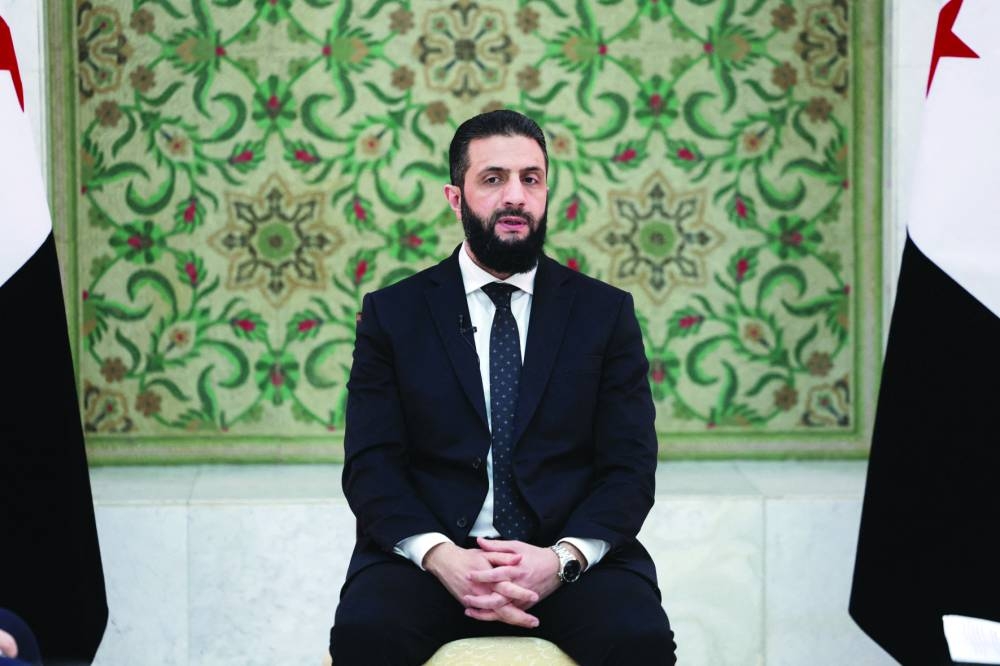The East Mediterranean region has experienced far more than its share of crisis, conflict, and human suffering in recent years, but right now its governments have a rare opportunity to unlock a long list of prizes that would benefit everyone involved.
Specifically, the current relative lull in the region’s perennial instability offers an opening through which the trio of Cyprus, Lebanon, and Syria might do each other – and their respective peoples – a series of long-lasting favours. And right now, all three in are need of some good news.
A new Syria is emerging after a lengthy civil war that killed at least half a million people and toppled a regime that had been in place for half a century. The nascent government in Damascus is still finding its way in terms of how it will approach relations with its neighbours and the rest of the outside world, so any dealings with it now could help set the tone for generations to come.
Long-suffering Lebanon has finally installed a new president, a new prime minister, and a new cabinet after almost two decades of continual dysfunction and constitutional paralysis, bookended by two wars with Israel and occasionally punctuated by bouts of domestic violence, too. The new leadership currently enjoys widespread popular support, but it faces a hefty host of challenges, not least the need to avoid a resumption of hostilities with Israel while rebuilding an economy brought low by corruption and incompetence.
Cyprus remains an oasis of stability by comparison, but it also faces difficult conditions. Despite a strong economic performance last year, several setbacks have curbed growth forecasts, and while diplomacy is again underway, there remains the ever-present question of how to reunify the divided country.
Historically, Cyprus and Lebanon have struggled to ensure enough energy to meet domestic demand and accelerate economic development, a situation made even tougher by the ever-increasing prevalence of power-hungry information and communications technologies. Syria’s experience has been better thanks to considerable onshore deposits of oil and natural gas, but its reserves are limited, and onshore production can’t keep up with population growth.
More recently, the entire region has been excited about the prospect of significant offshore oil and gas deposits, but the path to locating and recovering that wealth has been strewn with obstacles. Safely extracting hydrocarbons from beneath the seabed is a complex and expensive undertaking, so much so that it typically requires partnering with one or more major international oil companies, and IOCs tend to avoid offshore areas where ownership is in dispute or soon could be. And therein lies the problem: even after the historic maritime boundary agreement struck by Lebanon and Israel in 2022, most of the maritime boundaries in the Eastern Mediterranean – including Cyprus-Lebanon, Lebanon-Syria, and Syria-Cyprus – remain unsettled.
As a result, while Israel and Egypt have been producing offshore gas for many years, Cyprus is near start up like their neighbours, Lebanon, and Syria have made much less headway. IOC exploration has found some promising acreage offshore the south coast of Cyprus, but exploration in Lebanese waters is still in its infancy, and although Syria once pumped more than 600,000 barrels a day from onshore oilwells, the sector needs new investment – especially if it is to make significant moves offshore, and while Russian energy firms have carried out exploration in the past, most Western IOCs will be hesitant unless and until there is more clarity about who owns what.
Together, these facts mean that for once, the three countries in question have the power to take charge of their own destinies in a way that history rarely affords them. They can do this by working together to settle their maritime boundaries, thereby opening the way for international investment to help them to fully explore and responsibly exploit their respective exclusive economic zones. Natural gas is highly imperfect, but since it burns so much cleaner than other fossil fuels, it is generally accepted by most experts that it will be an indispensable bridging fuel as the global economy transitions to a low- or no-carbon future.
For each of Cyprus, Lebanon, and Syria, developing a safe offshore hydrocarbon sector would not only dramatically boost domestic energy security, but also offer a chance to earn significant export revenues. Those funds would permit historic investments in things like education, healthcare, and transportation, improving the lives of everyday people, making all three economies more competitive, and reducing the scope for disagreement among them.
From a technical perspective, settling the Cyprus-Lebanon, Lebanon-Syria, and Syria-Cyprus maritime boundaries would not be difficult. The United Nations Convention on the Law of the Sea (UNCLOS) has published guidelines on how to draw such lines with pinpoint accuracy, maximum equity, and unquestionable fairness. It all comes down to science and the law, and provided the three governments approach the negotiations with goodwill, the process should be quite straightforward. For a variety of historical/ideological/political reasons, the former regime in Syria was widely seen as unlikely to make such a deal with Lebanon, but the new rulers in Damascus may be much more flexible.
Whatever the possible difficulties, the potential riches to be had are more than worth the effort, and regardless of where they are found, all three countries stand to benefit from working together to settle their maritime boundaries. Agreed borders would be a diplomatic breakthrough, but the exercise of negotiating them could be even more valuable by generating trust, goodwill, and the confidence to expand co-operation into other fields, from fisheries and marine protected areas to tourism, weather forecasting, and search & rescue.
As much of the East Med region tries to move on from its troubled past, nothing could be more helpful than forming new relationships among states, governments, and peoples. Doing so would not only spur faster economic recovery, but also broaden the basis for overall development and social stability. While the leaders who get this done will have earned the love and respect of their respective populations, I would submit that the rewards might go even further: by using energy to promote peace, they would set a sterling example by demonstrating that co-operation is always preferable to conflict.
To my mind, at least, that example should earn them consideration for the Nobel Peace Prize, not least for the powerful symbolism involved: instead of going to war over resources, they will have turned much of history on its head by proffering access to resources as an inducement to build and maintain peaceful, co-operative relationships.
In the final analysis, the East Med region has within its grasp a truly historic treasure chest, one containing not only lucre and energy security, but also a veritable new era of peace and stability, one in which relations among states are conducted according to the rule of (international) law. This is the very purpose for which the United Nations was founded, and although that organisation has frequently been prevented from carrying out its mission in this and other parts of the world, what would be more appropriate than to have member states adhere to the very principles that the Security Council cannot or will not uphold?

Roudi Baroudi

Syria’s interim President Ahmed al-Sharaa attends an interview with Reuters at the presidential palace, in Damascus, Syria on Monday. (Reuters)
